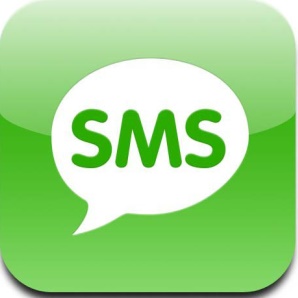In the quest to establish a presence in social media channels such as Facebook, Twitter, or Pinterest as well as build up an email marketing database, a connector that is potentially more effective than all of these may be in the palm of your hand… or actually in the palm of your audience’s hand. Yes, mobile holds great promise as a means of reaching people regardless of where they are. But, one aspect of mobile marketing is often overlooked: short message service (SMS), better known as texting.
Advantages of SMS
No marketing channel is perfect- each one offers a trade off of strengths and limitations. SMS is no different; among the advantages of incorporating SMS into your digital strategy are:
- High reach– 81% of mobile phone users text (Source: Pew Research Center)
- Permission based– People sign up for your text messages because they want to hear from you
- Immediate processing– 97% read rate within 15 minutes of delivery (Source: Pure360)
- High click-through rates- URL click-throughs for SMS more than four times higher than for email (Source: Hubspot)
- Cost effective– Pricing on SMS marketing software and services vary, but it is possible to communicate with an opt-in audience for a few cents per contact.
The permission-based nature of SMS marketing sets the stage for immediate processing and higher click-throughs on URLs in messages. Unless you are a spammer (and if you are you shame on you!), people receive text messages from your business because they opt-in to receive them. Brands build trust in the marketplace, and one way in which that trust is rewarded is when you are granted permission to communicate with people via SMS.
Pick Your Spots
It would be a stretch to say SMS could have a marketing role in every business. So what are conditions or situations that are most conducive to incorporating texting as a communication channel?
- Use as a multi-channel strategy- Texts can be used to drive subscriber engagement with other channels (e.g., social media and email)
- Conduct market research- Can be used to quickly gather feedback on customer experience by inviting recipients to complete a survey
- Communicate information in real-time- If you have time-sensitive information or “breaking news” to share, SMS puts in front of your audience quickly
- Encourage action– Text messages can promote sales or other promotions to drive traffic to your store or website.
Using SMS to reach customers and others who opt in to hear from you has obvious applications for B2C businesses, but if you are a B2B marketer do not dismiss SMS as irrelevant. Why? Business buyers and decision makers are people, and most people have mobile phones with SMS capabilities.
The Elusive Consumer
Today’s consumer can be described as easier to reach and harder to engage than ever before. The paradox is that we are easier to reach- mobile devices are indicative of our “always on” behavior- yet harder to engage as we are overwhelmed with messages that beg for our attention. A defensive posture is to ignore or tune out most of those messages, thus the “harder to engage” assertion. SMS plays into the easier to reach aspect by delivering messages to our fingertips. At the same time, SMS responds to the challenge to engage audiences by communicating only with those people who want to receive text messages. Making SMS work is no different than successfully utilizing social media, email, or traditional media advertising. Communication must be relevant to the audience and respectful of the their time and attention.

